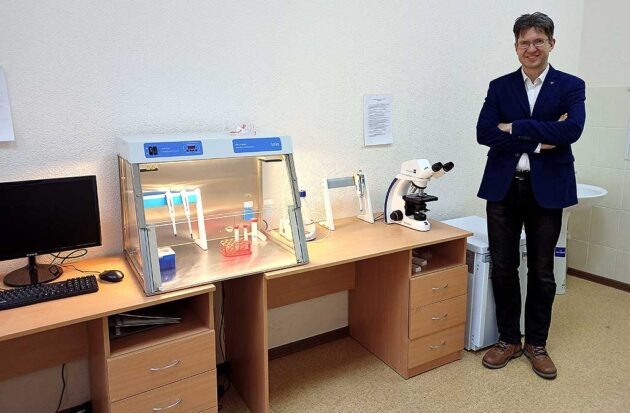Studies on cell cultures can be used to assess the effects of pathological or therapeutic factors on individual cells, eliminating the reactions of other cells, organs and systems. The capabilities of the laboratory allow modeling pathological conditions on cell cultures and using cultures for the needs of regenerative medicine.
Cell cultures: fibroblasts, hepatocytes, nerve cells, bone marrow cells, adipose tissue cells, cells of placenta, amniotic membranes, kidneys, lungs, splenocytes, and stem cells. Organotype, pair cultivation, tissue culture, cultivation of spheroids, cells on scaffolds and in alginate carriers.
Methods of cell culture assessment: adhesive properties, monolayer confluence, morphology, proliferative activity (population doubling), metabolic activity (MTT assay, resazurin assay), migration (scratch assay), pinocytosis and cell viability (neutral red uptake assay) and membrane integrity assays (trypan blue staining, ethidium bromide staining), and genotoxicity (micronucleus assay).
Models of diseases reproduced on cells: glutamate-induced excitotoxicity on nerve cells, peroxide toxicity, cyclophosphamide-induced toxicity.

